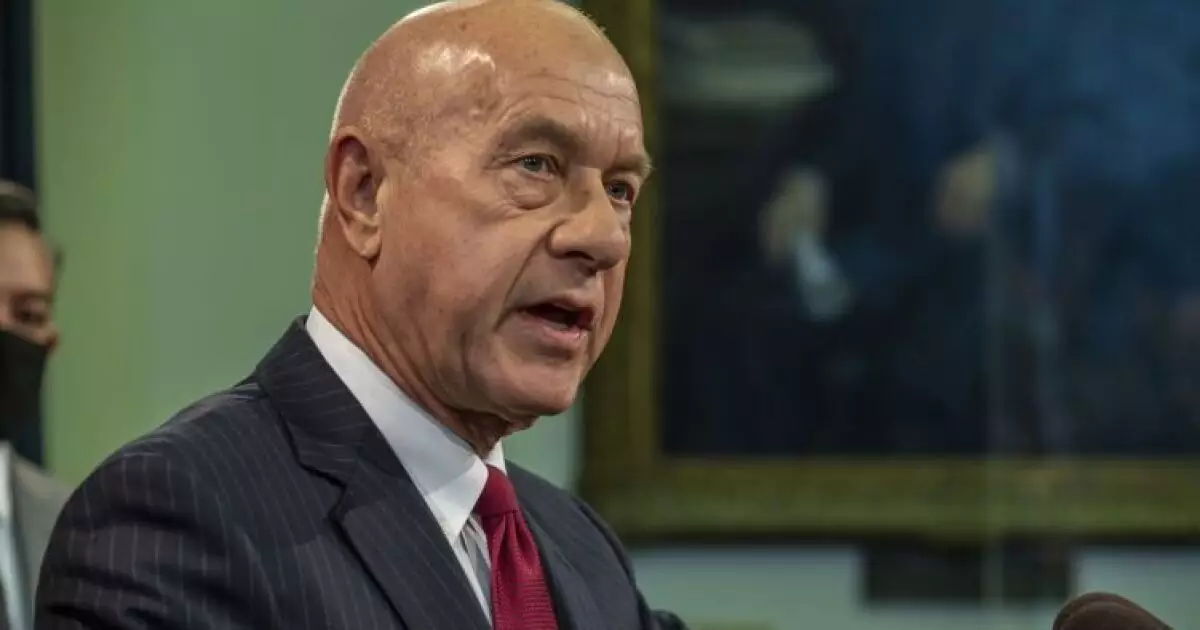In a bold move to reclaim financial stability, Houston Mayor John Whitmire has recently unveiled a groundbreaking agreement that requires the city to allocate a staggering $100 million annually from property tax revenue toward much-needed improvements in drainage and road infrastructure. This decision, precipitated by a lawsuit challenging the city’s financial management, marks a pivotal moment in Houston’s fiscal landscape. With this litigation dating back to 2019, the potential ramifications could have sent the city spiraling into a budget crisis, with projections indicating a structural budget deficit toppling $320 million. Such a financial abyss poses an existential threat not just to the city’s infrastructure but to public trust in city management.
Reallocation and Strategic Growth
Under the new agreement, Houston’s allocation for property tax dedicated to infrastructure improvement will gradually increase over the next few years—from a current 57% to a full 100% by fiscal 2028. This step is vital for revitalizing an infrastructure that has long been neglected. Mayor Whitmire’s public affirmation of this strategy indicates a commitment to rectifying budgetary imbalances while ensuring that essential public services remain funded. The necessity of this funding cannot be overstated; Houston’s aging roads and drainage systems have been under heightened scrutiny, and the risks of neglect could manifest in everything from increased traffic congestion to devastating flooding.
Implications of Fiscal Accountability
This agreement serves as both a corrective measure and a clarion call for greater fiscal responsibility among city officials. The impact of the city controller’s report showing a dwindling budget balance—from $349 million in December to a modest $228 million in February—has certainly raised eyebrows. Financial ratings agencies have adjusted their outlook on Houston’s bonds, revealing the harsh realities of fiscal mismanagement. On this point, both Fitch Ratings and S&P’s move to downgrade their outlook on Houston’s AA ratings from stable to negative paints a disheartening picture of city resilience. For a major U.S. city, such ratings are not merely bureaucratic gibberish; they directly affect borrowing costs and investor confidence, thus compromising future growth prospects.
A Yonder Glimmer of Hope: Legislative Help on the Horizon
As Houston navigates these treacherous waters, there may yet be a lifeline in the form of a recent bill proposed in the Texas legislature. This bill aims to allocate 30% of excess Harris County Toll Road Authority revenue to support cities like Houston, helping to mitigate the costs associated with public safety and emergency services. The financial uptick from this initiative could fortify the city’s budget and fuel ambitious infrastructure projects—a much-needed jolt for citizens feeling the brunt of a dilapidated transit system.
With political will and community support, the recent agreement marks a turning point for Houston. It reflects an emerging recognition of the profound interconnections between infrastructure integrity, economic relevance, and public well-being. The journey ahead is fraught with challenges, but the resolve demonstrated by city leadership might just be the catalyst needed to rejuvenate this diverse metropolitan area. The question now beckons: will Houston build on this momentum or allow history’s shadows of neglect to darken its promising future?


Leave a Reply